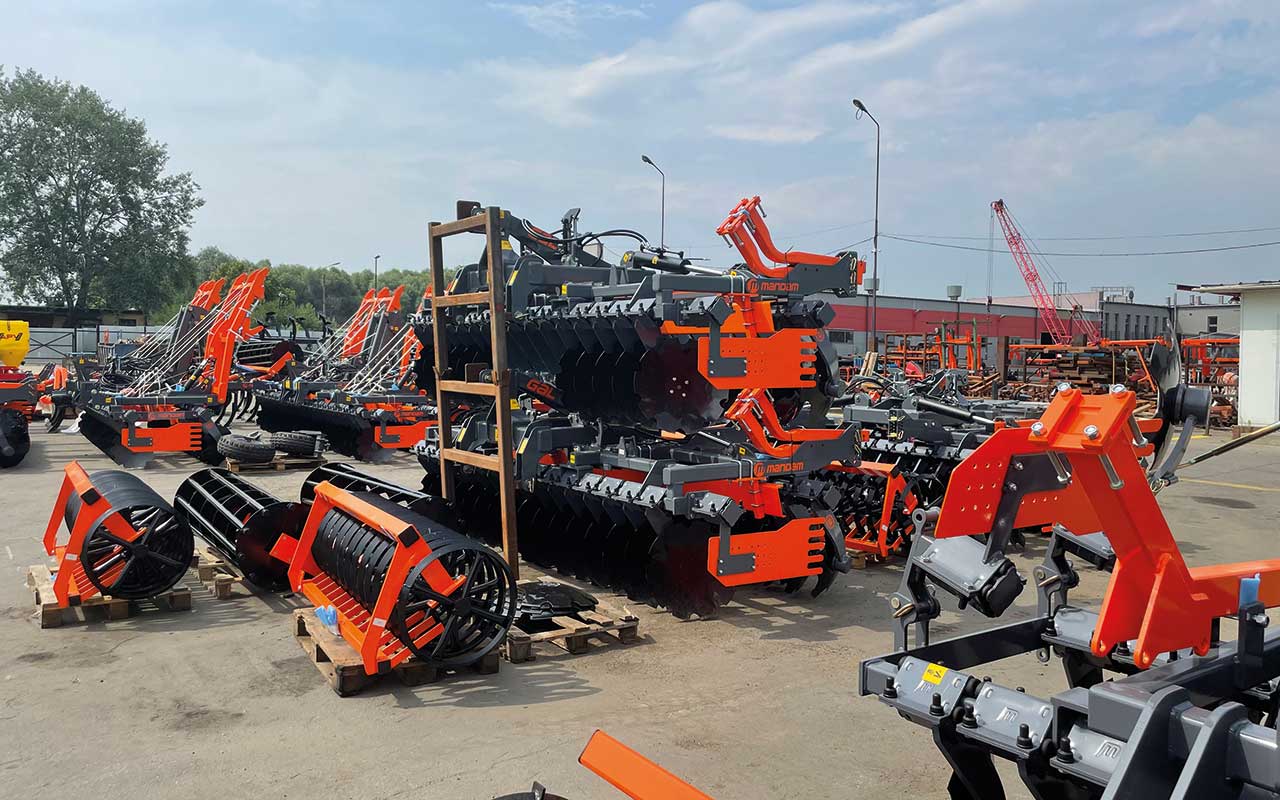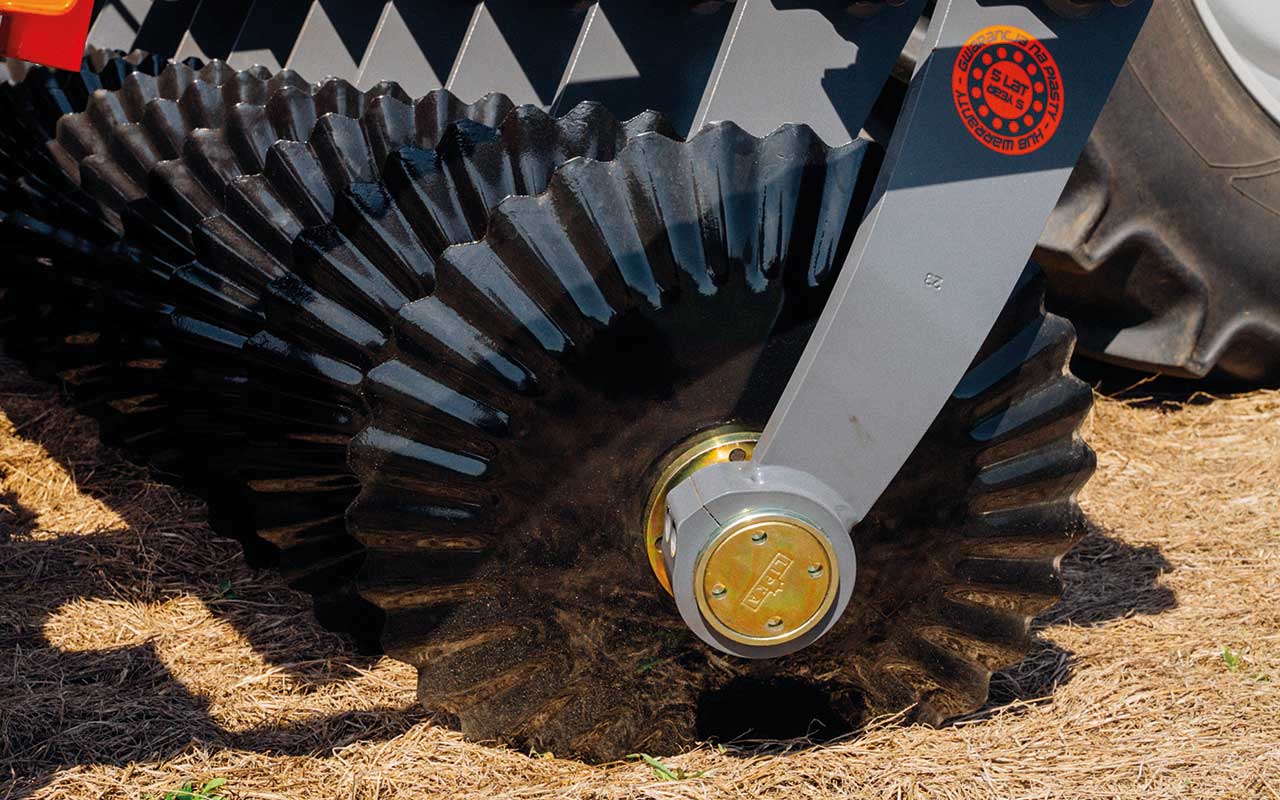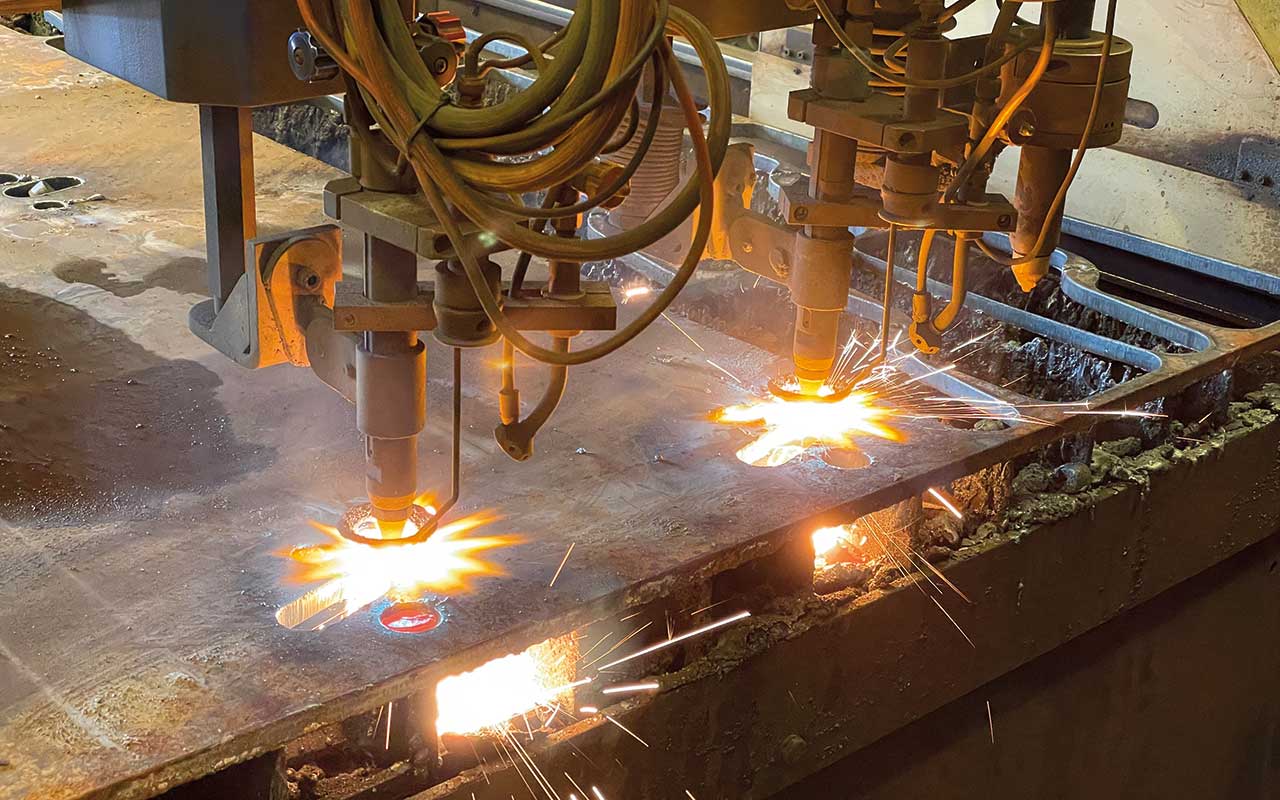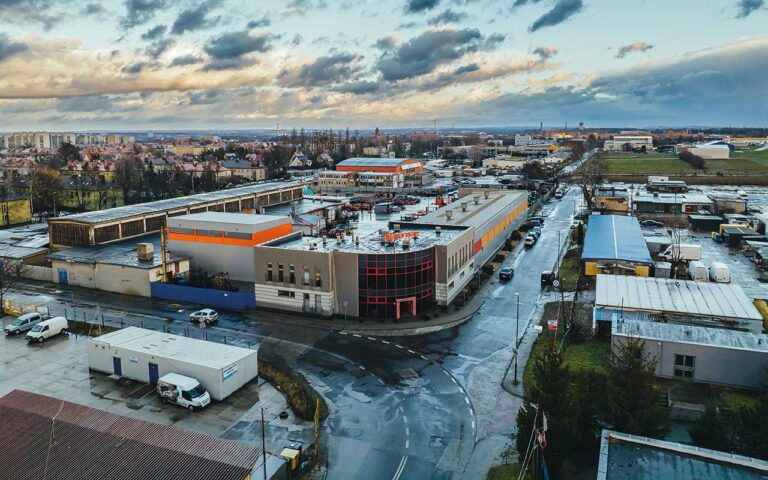You might not know the Mandam name, but there is a good chance you have seen the company’s range of products. Following its establishment in 1991, the company developed machines on licence for various OEMs.
“We worked with several companies across Europe over the years,” explains director Jerzy Księżyk. “However, it became apparent that to continue developing our customer base, we would need to focus on products bearing the Mandam name.”
Based in Gliwice, about an hour northwest of Kraków, the company has two manufacturing sites, with upcoming developments due to increase the annual production to around 2,000 units.
Its product range includes disc harrows, stubble cultivators, weeding harrows and seeders, with about 70% of products exported to 38 countries worldwide.

Products have proven popular in the Irish market, and the company is starting to develop its own UK dealer network, working with importer BC Machinery – a company that is fast becoming the place to access Central European manufacturers. It also works with Rozmital, which was featured in the tour of Czech manufacturers in our May 2025 issue.
The company was started by five families following Poland’s emancipation from the Soviet Union, with a view to develop machines for the Polish market. Jerzy notes that in 1991, the vast majority of agricultural machinery was imported into Poland.
The company’s headquarters also houses its manual welding department, painting halls, assembly lines and the research and design teams.
Its second plant, located around 55km away, has seen significant investment in automated machining and robotic welding.
Despite increasing the complexity of its product range, Jerzy says the company remains agile enough to move with customer demand.
“One of our key advantages is that we have farmers in the design team, and we collaborate with local farms for product testing,” he says. “We test all our prototypes for at least a year and can quickly adapt our designs to meet the requirements of our customers.”
Being privately owned, with capital from four families, he adds that the company can also make decisions about its future quickly.
“We like to work face to face with our customers. We’re still at a size where we can personally deal with things like warranty. Standard claims are handled quickly because we have weekly meetings.”

Patented machines
The company built much of its reputation on its disc harrows; the current batch of which make up the eighth generation. Jerzy explains that Mandam set out to make the strongest possible disc harrow, and after using off-the-shelf hub bearings for several years, in 2009 production of these were brought into the group.
“One of the owners also runs a machinery factory and developed a new bearing that is maintenance free,” he says. “It fits in the same dimensions as the units we were using, but can withstand up to 90Nm of force, far exceeding anything else on the market.”
The introduction of these bearings led to the company introduced a five-year warranty on all disc hubs in 2018, regardless of the hectarage worked.
Like with the full machines, having production of the bearings in-house means they can react quickly to market demands; tweaking the design to deal with increased vibrations, additional forces and temperature shifts, and the rotation speed of the disc harrows as working widths and disc diameters increase.
High-grade steel is used throughout the portfolio, sourced from within the EU, with boron steel used to manufacture the discs.
“Our focus is always on quality, and with that there is full transparency across our website. Our customers can access pricing and a full description of the company online,” Jerzy says.
“We are also working with dealers to train them on technical knowledge and marketing. For our domestic market, we have a fully online spare parts store, meaning growers can monitor their total cost of ownership and gain a better understanding of their maintenance expenditure.”

Expanding portfolios
With a focus on increasing the prominence of its own name in the European market and beyond, Mandam is constantly working to develop new products.
Some of these are for specialist markets, including a range of narrow units for vineyard operations and Asian markets. Jerzy notes that at present, Japan is the company’s biggest export market.
For the markets closer to home, he believes the number of units sold will decrease slightly, but with an overall increase in working widths.
“We’ll actually be selling more metres of machinery, even though it will equate to fewer machines. This means it is even more important to find our own niche within the market for high-quality, competitively priced machines.”
This is being borne out bh the current demand from customers. While 3m rigid machines and 5m or 6m folding units remain the most popular sizes, Mandam is seeing greater interest in its 8m, 10m and 12m equipment. Within its disc harrow range, it has also looked to add versatility for contractors.
“Our 8m and 10m trailed machines have a central chassis with a three-point linkage on each side,” Jerzy explains.
“The wings are two of our standard disc harrows. This means that if a farmer has variable field sizes, or if the machine is sold to a contractor, they can have either a single, wide machine or two narrower units to reach multiple customers at the same time.”
The company also offers a range of tined stubble cultivators, with fully hydraulic auto-reset, as well as a series of rollers.
It has a partnership with APV, enabling it to modify nearly any machine into a seeder or applicator to minimise the number of passes, and has recently developed a slurry applicator attachment for its tined units, allowing it to be fitted to the rear of a tanker or self-propelled unit.
“We’ve also partnered with an Italian manufacturer to develop a fully integrated seeder,” Jerzy says. “Instead of our previous arrangements, this will carry the Mandam name. We’ll buy the hoppers in from our partner and build the chassis and coulter units.”
It will include two distribution heads for even product flow, and the possibility to use half-width shut-off to limit overseeding and increase accuracy in awkwardly shaped fields.
This coincides with Mandam rolling out Isobus connectivity on select machines in the range, which will enable greater levels of precision technology to be used.
Premium brand
Looking ahead, there will be a series of new products introduced at Agritechnica, including a set of Cambridge rollers and a newly designed stubble cultivator.
By filling out the product range and continuing to offer grassland equipment, including aerators and harrow weeders, Jerzy hopes the company will secure its position in the market as a high-quality, affordable brand.
“We are considered the premium brand in Poland,” he concludes. “There is more and more competition, but we believe we can go head to head with any brand on quality and price.”



